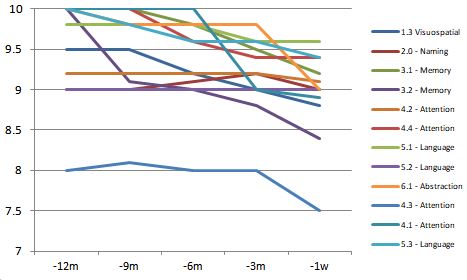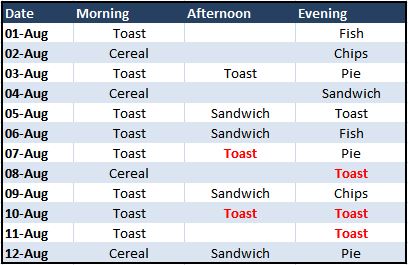diagnosis | reassurance | wellbeing | independence | dignity
Independence & Dignity
mindminder facilitates living independently and healthily for longer
mindminder supports independent living, providing a regular stimulating prompt of personal self-awareness and robust reminders of chores, actions, and self-care actions which enables engaged but non-intrusive monitoring of independent living and welfare.
Mentally Stimulating
mindminder provides dynamic and stimulating content to users in their familiar environment.
mindminder introduces familiar, engaging, and encouraging personalised dialogue to users in their own environment; reminders, anecdotes, facts and recollections to provide cognitive stimulation and prompt positive reinforcement of self.
Efficiency in Care
mindminder's data, obtained through non-intrusive conversation, can inform more cost-effective and patient-led care outcomes
Domiciliary care visits, while still valuable from a welfare perspective, can now be tailored around a greater insight into a client’s lifestyle and moods; saving care miles, carer time, and making each visit better informed and therefore far more effective.
mindminder harnesses the power of modern technology to stimulate and evaluate dementia sufferers and to develop a unique and long-term data-driven analysis of the rate of stability, or decline, in mental capacity.
Seamlessly weaving clinical assessment-based mental capacity assessment questions with personalised anecdotes, memories, reminders and other carer-defined dialogue to provide a familiar and dynamic interactive source of stimulus to a user.
Families, carers and health professionals can use the data acquired during each dialogue to develop an objective and consistent understanding of a user’s mental capability. Analysis of the data allows trends and changes in response to be identified in support of care and wellbeing decision-making.
Designed to be used on any internet-enabled device (tablet, phone, laptop or kiosk) mindminder uses voice-led interactions and speech recognition based on the Amazon Web Services infrastructure which is trusted by firms such as Samsung, Deliveroo and the NHS.
mindminder is cost-effective, unobtrusive, efficient and impartial.
Subscribe to the mindminder newsletter
To keep updated with news on mindminder's development sign-up for newsletter EMails. Don't worry there's no risk of getting hundreds of useless updates in you Inbox as we're too busy getting mindminder ready for launch!






Testimonials
What People Say About mindminder
I was worried my memory was getting
worse; I use mindminder for personal reassurance and I enjoy the challenge of
the questions to keep my mind active. It’s also nice to know my family has
oversight of how I’m still living fine on my own without needing to follow-up
with awkward calls about my capabilities all the time.

mindminder User
United Kingdom
As a family we suspected dad was starting to show signs of Dementia. Mindminder’s data helped us make an informed decision about the state of his condition; having real data removed the subjective emotion around us all acknowledging the situation together.
Mindminder’s data also gave us a better basis for seeking medical
support at the right time for all of us.

mindminder Family member (Carer)
United Kingdom
I love the way mindminder gives me
a window into my client’s welfare before I’ve even visited: I already know
she’s forgotten to eat before I arrive so I’m better prepared and recognising
she was frequently feeling lonely in the afternoons meant that I was able to
reschedule my visits to later in the day – everyone wins.

Domiciliary Care Professional
United Kingdom
How does Mindminder work?
Setting up and using mindminder is simple.
You need to create the necessary accounts: Organisation, Carer, and User and go ahead customising the User's mindminder experience.
1: Register and Setup
Sign-up to mindminder and set-up one or more internet-enabled devices in the User’s environment. When mindminder isn't interacting it acts as an always-on "Dementia Clock".
mindminder has three fundamental concepts:
Users - those interacting with the mindminder dialogue via their mindminder devices (tablet etc.).
Carers - those monitoring and customising a Users' mindminder experience
Organisations - a grouping of Carers and Users which allows a secure many-to-many relationship between Carers and Users
2: Customise Content
Carer(s) customise mindminder’s user-specific content; add personal anecdotes, reminders and prompts to improve their wellbeing, health or spirit.
mindminder is ready to use straight away with predetermined assessment content, facts, and typical basic welfare reminders.
Additionally, a User's experience can be personailsed by Carers to include fond memories. reminders and inspiring messages of love and encouragement to maximise the User's engagement with the mindminder experience.
3: Schedule Dialogue
Carers set up a schedule for mindminder to initiate dialogue with each User.
Scheduling is important as mindminder will automatically initiate a conversation without the need for a User to start the conversation.
Scheduling allows full control over the conversation content, for example biasing towards assessment questions during the day and welfare checking at morning and afternoon conversations. Reminders can also be added to provide a follow-up on key prompts such as to take medication to gain acknowledgement from the User that the task was completed.
4: Monitor Feedback
Use mindminder’s intuitive dashboard to monitor User responses and determine mental capability, quality of life and wellbeing.
mindminder's dementia assessment questions aggregate verbal questioning from a number of clinical approaches; much the same as a single hot day doesn't indicate climate change, many smaller measurements done by mindminder over an extended period can be more helpful towards diagnosis than a single exam-based assessment.
Results can also be presented as challenges/rewards to encourage participation.
5: Enjoy!
As a Carer (formal carer or family member) enjoy the enhance peace of mind that mindminder's data and insights give to a User's wellbeing, independence and capability.
As a User enjoy the stimulating and enlivening conversation that mindminder provides to break up the day and be reminded of pleasant or inspiring life events relationships, and one's own identity.
6: Share & Contribute
By using mindminder the user data is securely and anonymously combined with that of all the other mindminder users to provide an unprecedented population wide insight into the influences and nature of dementia and mental health issues.
To learn more about the structure, content, and customisation of mindminder's dialogue, click here
Carer Dashboards
Although mindminder's content is focused on the User's welbeing, welfare, and mental stimulation, one of mindminder's other valuable assets is the ability for Carers to obtain insights into a User's dementia stage/progression, their mental and emotional state, and their level of self-care capability.
mindminder's "Carer Dashboard" aggregates information obtained from Users' interactions with mindminder and presents this in a way that allows both day-to-day and longer-term evaluation of Users' situations. For example, the dashboards present the responses to mood-based questions, give evidence of regular and/or healthy eating and self-care, and provides correlation of dementia, anxiety and depression questioning responses to give an indicative evaluation of a user's state (inferring whether improving, stable or declining).
Examples of the Carer Dashboard analysis are provided below.
Note that during mindminder's current pilot phase, Carer Dashboards remain under development

Dementia
Assessment Results
In this example, we can see that the correctness of answering can be tracked over a period of time and that results of the nuances of different elements of cognitive decline can be determined to be deteriorating at differing rates ("short-term memory" is more stable than "reasoning" capabilities)

Independence & Dignity
Living Independently
A Carer could use this dashboard to review the most recent entries from a User being asked what they last had to eat. Here it would be a cause for concern that the User regularly indicates that the last meal they recall appears to have been their breakfast despite it being asked late afternoon: are they overlooking to eat at lunchtime?

Emotional Oversight
Emotional Wellbeing
In this example we can see that a User appears to be exhibiting less frequent positive responses and is recently mentioning feeling lonely more often. Could something have changed in the User's lifestyle or environment that could have influenced this shift in mindset and can it be corected; as a Carer would this subtlety be obvious without mindminder?





